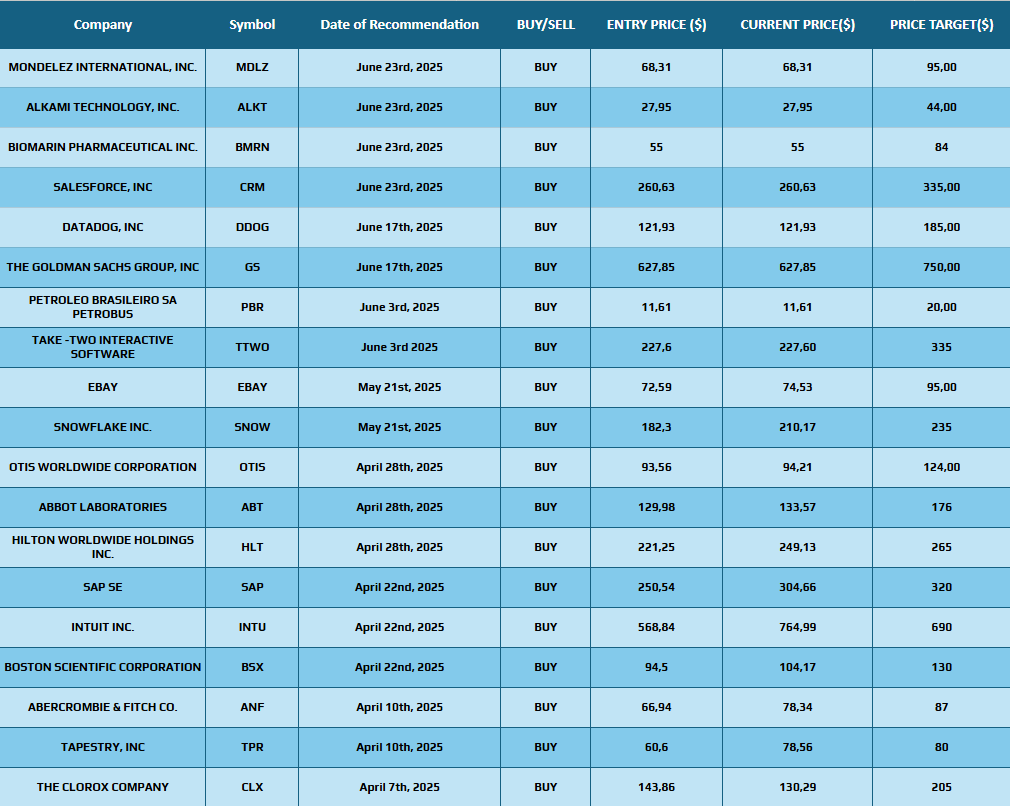
Date Issued – 27th June 2025
Preview
This week’s headlines paint a complex global picture: U.K. car production slumps to levels not seen since 1949, highlighting the toll of shifting trade policies and tariff shocks. In China, industrial profits continue their downward spiral, despite retail momentum and strong exports. Meanwhile, Xiaomi charges into the EV war, undercutting Tesla with record demand. Core Scientific soars on buyout talks as AI infrastructure reshapes the mining sector. Salesforce CEO Marc Benioff confirms what many suspected – AI is now doing nearly half the work.
UK Auto Production Falls to Lowest Since 1949
UK car and commercial vehicle production dropped 32.8% in May to just 49,810 units – the lowest level since 1949, excluding pandemic lockdowns. The slump is largely driven by model transitions, restructuring and the impact of Trump’s 25% tariffs on imported autos. Although a partial tariff rollback was announced for the first 100,000 units shipped annually, exports to the U.S. still fell over 55%. The automotive sector, a cornerstone of UK exports, faces continued headwinds despite recent trade policy adjustments and diplomatic efforts aimed at boosting long-term competitiveness.
Investment Insight:
Investors with exposure to UK automotive manufacturers or suppliers – particularly names like Jaguar Land Rover (Tata Motors) and Aston Martin – should prepare for prolonged margin pressure. While the temporary tariff relief may benefit some U.S.-based importers, overall export volumes remain constrained. Watch for stimulus measures or bilateral trade revisions in H2 as potential catalysts. Supply chain-sensitive equities and related ETFs (e.g. CARZ, FCAU) may underperform if export flows fail to rebound quickly.
China Industrial Profits Slide 9.1% in May
China’s industrial profits plunged 9.1% in May, the steepest drop in seven months, signaling that Beijing’s stimulus measures are not yet reviving corporate margins. Cumulative profits for the year are down 1.1%, with sectors like mining falling 29%. Despite a retail rebound and 5.2% GDP growth in H1 2025, analysts say weak demand and a brutal price war are pressuring margins. The Politburo may delay further stimulus until deeper economic cracks emerge, especially amid ongoing U.S./China trade tensions and export shifts.
Investment Insight:
Investors should monitor companies exposed to China’s industrial base, especially mining and automotive manufacturing. The profit compression, driven by deflationary forces and competitive discounting, could strain industrials and commodity-linked sectors. While H1 GDP remains strong, the lack of immediate stimulus action suggests a cautious near-term outlook for Chinese cyclicals and industrial ETFs. However, firms benefiting from retail demand or exporting to Southeast Asia and the EU may outperform as trade routes shift.
Xiaomi Shares Surge on New YU7 EV Launch
Xiaomi shares jumped over 5% to a record high after unveiling its new electric SUV, the YU7, priced at 253,500 yuan – 10,000 yuan cheaper than Tesla’s Model Y. Within three minutes of launch, over 200,000 orders were placed. The YU7 boasts a 760 km range, Apple CarPlay support, Nvidia’s Thor chip for driver assist and advanced AI features. Xiaomi also debuted AI-powered smart glasses alongside the EV, expanding its presence in the AI-driven consumer tech space.
Investment Insight:
Xiaomi’s aggressive pricing and rapid market traction in the EV sector signal a growing threat to Tesla and legacy automakers in China. With demand for smart, feature-rich EVs accelerating, Xiaomi’s vertically integrated ecosystem – spanning smartphones, AI devices and now vehicles – may unlock new revenue streams. Investors should watch for delivery execution and margin impact from price competition, but the momentum positions Xiaomi as a multi-sector growth story in both tech and mobility.

Core Scientific Soars on CoreWeave Buyout Rumors
Core Scientific shares surged 35% after reports from The Wall Street Journal revealed acquisition talks with CoreWeave, its AI infrastructure partner. The deal, potentially closing in weeks, would follow a previously rejected bid valuing Core Scientific at just a quarter of its current $5B market cap. The rally marked the company’s second-biggest day since its Nasdaq relisting in early 2024. Core Scientific has shifted from crypto mining to AI hosting, securing $10.2B in long-term commitments from CoreWeave, with 590 MW of capacity expected by early 2026.
Investment Insight:
Core Scientific’s transition from bitcoin mining to AI infrastructure has reignited investor interest, with CoreWeave’s strategic backing serving as both growth catalyst and potential exit path. If the deal materializes at a premium, it could set a precedent for revaluing distressed tech infrastructure firms repurposed for AI workloads. Investors should monitor regulatory risks and integration challenges, but the upside from AI-linked infrastructure demand keeps Core Scientific firmly in the speculative growth spotlight.
AI Now Handles Half of Salesforce’s Workload
Salesforce CEO Marc Benioff revealed that artificial intelligence is performing 30% to 50% of the company’s internal workload. Labeling it a “digital labor revolution,” Benioff emphasized how AI is helping tech firms cut costs and restructure operations. Salesforce itself laid off over 1,000 employees this year as part of its AI-driven transformation. The company claims its AI systems operate with 93% accuracy – well above competitors – thanks to vast internal data. As automation expands, Benioff encourages reallocating human talent to higher-value tasks.
Investment Insight:
Salesforce’s aggressive AI integration signals a broader enterprise shift toward automation-led efficiency. High internal adoption and superior data positioning give Salesforce a competitive edge in the AI software market. Investors should watch for margin improvements and further workforce restructuring as key signals of long-term cost optimization. The trend could also reshape valuations across SaaS companies, favoring those with robust AI infrastructure and scalable data ecosystems.
Conclusion:
From auto tariffs to AI-fueled restructuring, today’s news underscores a volatile yet opportunity-rich environment. Markets are reacting less to sentiment and more to structural pivots – from industrial realignment to tech adoption at scale. For investors, the signal is clear: follow the capital flowing toward AI efficiency, consumer pivot points and infrastructure reinvention.
Upcoming Dates to Watch:
- June 30th: U.S. & Japan Industrials; UK Nationwide HPI
- July 4th: Senate vote on Republican + debt ceiling bill
- July 8th: China Non-Manufacturing PMI
Find below some of our Buy/Sell Recommendations. Balfour Capital Group is a distinguished global boutique investment management firm with $350 million AUM and over 1000 Clients.

Disclaimer: This post provides financial insights for informational purposes only. It does not constitute financial advice or recommendations for investment decisions.




